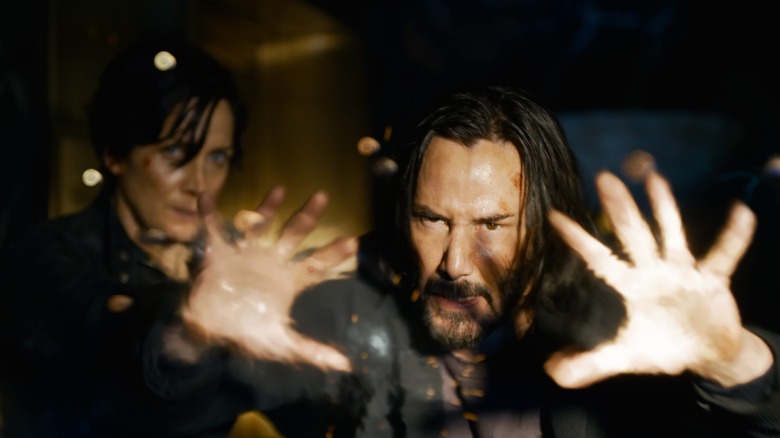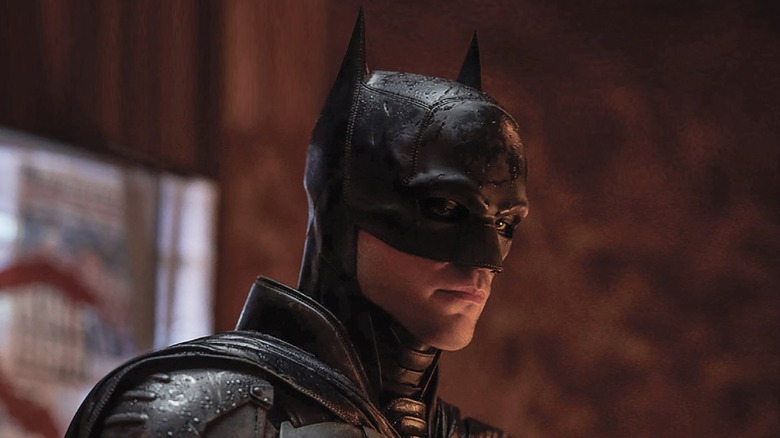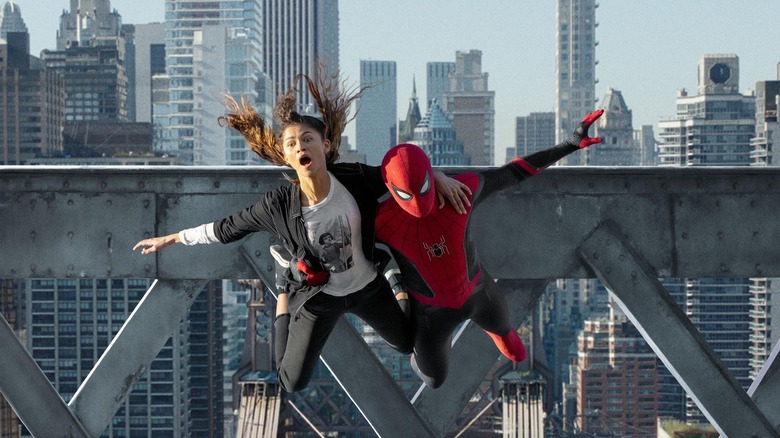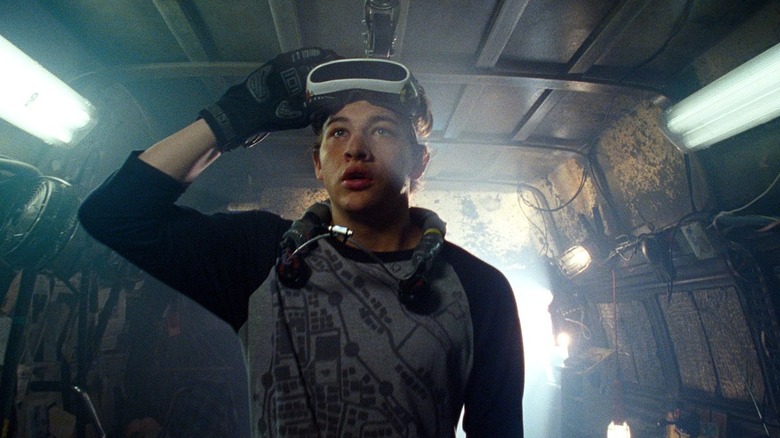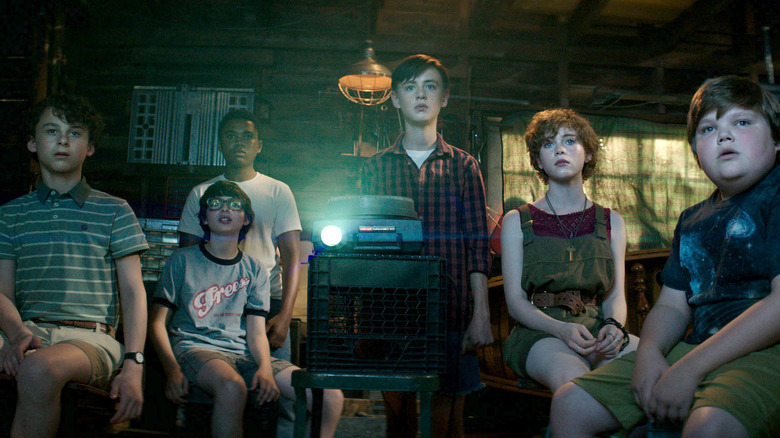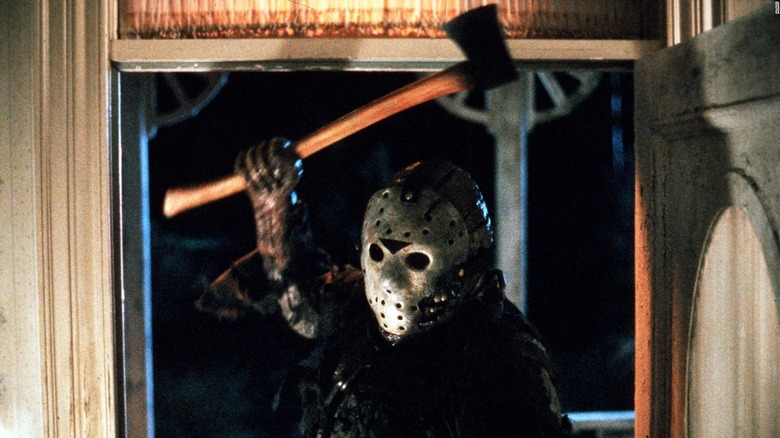The Village Roadshow VS Warner Bros. Case Explained: Or How I Learned To Stop Worrying And Love The Lawsuit
It was tough to imagine there would be no fallout from the "day-and-date" release strategy some movie studios committed to these past couple years. With the pandemic leaving theaters either locked down, or too risky for audiences, we saw a radical pivot to streaming that changed the theatrical market, probably forever. Though this felt like the compassionate and smart move to ensure eyes were on films, lots of filmmakers were shredded in the process. How? Well, distribution deals and contracts are complicated, often involving bonuses and backend deals for those with a stake in films. When Warner Bros. announced their day-and-date plans to release their 2021 theatrical slate simultaneously on HBO Max, keen eyes wondered what the legal fallout might be. Now, with Village Roadshow's claim against Warner Bros., we are starting to have more of an idea.
Earlier this week, it was reported that Village Roadshow has sued Warner Bros. There are many issues mentioned in their claim, but the gist is that Village Roadshow alleges that by sending their co-financed movies to HBO Max for a day-and-date release, it resulted in "abysmal" box office sales which diluted the value of Village Roadshow's tentpole movies.
Who is Village Roadshow and What's Their Relationship to Warner Bros.?
Village Roadshow is a film production and distribution house. They have a co-financing deal with Warner Bros., which means they jointly finance and own movies like the "Matrix" trilogy, "Joker," and the "Oceans" movies (and thus, "The Matrix Resurrections" and "Oceans 8").
Village Roadshow also has deals with Columbia, Paramount, Universal, and more.
This claim is primarily about "The Matrix Resurrections," as the fallout is already evident, but also about the ongoing value of their shared franchises, like "Edge of Tomorrow," "Ready Player One," or any other number of co-productions that could have different arrangements. It's hard to speculate without knowing the details of their specific arrangements, however, language in the claim suggests there is concern about ongoing franchise rights of their joint ventures. This is about their movies specifically getting put on HBO Max, which Village Roadshow alleges bolstered subscriber numbers for HBO Max (and therefore benefitted Warner Bros.' parent company) and harmed the theatrical profits for Village Roadshow.
But Didn't Everything Go to Streaming Because of COVID?
Nope. There are a few key bits to push back at the argument that Warner Bros. had to put everything on streaming because of COVID lockdowns/ fears. First, there's Spider-Man. "Spider-Man: No Way Home" was released in the thick of the pandemic and obliterated box office numbers (this mattered for ScarJo as well). Second, not everything was put on HBO Max — some movies were delayed. Movies like "The Batman" and "Black Adam" are being saved for exclusively theatrical releases. These movies, the ones Warner Bros. chose not to put day-and-date on HBO Max, are ones financed and owned only by Warner Bros. Village Roadshow is arguing that Warner Bros.' wholly owned projects were spared for theatrical releases, and joint ventures were released simultaneously to streaming.
Village Roadshow also alleges that this was a ploy to use joint ventures as a means of propping up the value of HBO Max, a streaming service that shares Warner Bros.' parent company. The allegation is that this was a coordinated effort to prop up the value of HBO Max and diminish the value of Village Roadshow co-financed productions.
How Do Day-and-Date Releases Hurt Village Roadshow?
At least two ways. The most obvious is that there is likely a payout structure in their deal where Village Roadshow earns part of the box office profits. If box office profits were hurt by a day-and-date release, they will earn less money than they expected to. Warner Bros. made a show of the fact that they negotiated with filmmakers with whom they had profit share agreements, like Lana Wachowski (director of "The Matrix Resurrections") and the team behind "Dune." Village Roadshow claims they were given no such courtesy.
This could also hurt Village Roadshow's negotiation power to produce further content based on their properties since the poor box office performance could harm the value of their properties, which could in turn harm their investment prospects. For instance, if "The Matrix Resurrections" performed more poorly at the box office as a result of the simultaneous release, there could be less value attached to the franchise in general, which could hurt Village Roadshow's ability to negotiate for its complete value when making future content within the franchise. Again, this would all be contingent on a court finding that the day-and-date release did, in fact, affect the box office. That's why the performance of "Spider-Man: No Way Home" is so important; it showed that movies could perform well even during pandemic lockdowns/discomfort around theaters.
Further, we can deduce from the claim that as part of the deal, Village Roadshow has to make a contractually obligated payment to Warner Bros. at the risk of losing the rights to their films. As a result of poor box office performance, they're arguing that they did not earn enough money off of their films to pay Warner Bros. and therefore risk losing the ongoing rights to their films. In their claim, they mention that Warner Bros. is seeking to deprive them of their rights to other films like "Edge of Tomorrow" and "Charlie and the Chocolate Factory" (this is part of a much larger conversation about the difference between remakes and re-adaptations of source material and thus who owns copyright, something discussed in further detail as it pertained to 2017's "It"). This is especially juicy with rumors about Warner Bros. working on an "Edge of Tomorrow" TV show, as contemplated in the claim.
How is this Similar to Scarlett Johansson's Claim Against Disney?
In 2021, Scarjo brought a similar claim against Disney. Of course, hers was much simpler and was in a lot of ways the proto-claim. Johansson is an example of someone who had a backend deal in her contract to be paid a percentage of money earned from a "wide theatrical release" of "Black Widow." Disney made the decision to release "Black Widow" on its streaming service, Disney+, instead of releasing it exclusively to theaters. Her argument was that the language in her contract led her to expect an exclusively theatrical release, and expected the bonus to reflect that.
Disney and Johansson settled their matter shortly after the claim.
The reason this matters is because it is indicative of who loses out when films are not given the traditional theatrical release. Filmmakers and production houses, etc., have different types of complicated deals and it's very common to have a percentage of box office gross, or profits, included as part of the payment agreement. Johansson was one such party with that type of agreement who believed herself to have lost money as a result of Disney's decision.
Many believed that Warner Bros. was in a different position than Disney because of their display of negotiating with filmmakers behind "Dune "and "The Matrix Resurrections," however, it seems Village Roadshow is alleging they were left out of those conversations.
What Does the Arbitration Clause Mean?
We can only speculate as to the arbitration clause without seeing their agreement, but we can gather a bit of context from the allegations. Oftentimes, in contracts, there will be arbitration or jurisdiction clauses that dictate where any disputes should be handled. For instance, if you look at an end user agreement on any app you install, it will likely have a notice about what jurisdiction any disputes would be handled in. These can sometimes be really specific as to what is covered, and that appears to be the case here.
Warner Bros. is arguing that this suit is frivolous, and that Village Roadshow has ignored their arbitration request, which is their contractual obligation. Village Roadshow claims that they're seeking a declaration from the court, not a monetary award, so the arbitration clause doesn't apply. They're also arguing that the clause does not bar them from seeking monetary relief in court.
What Does This Mean Going Forward?
The biggest takeaway from this situation is that there are way more interested parties in theatrical profits, and way more complex issues with respect to box office grosses, than the casual observer might have initially thought. Many initially contemplated that those who worked on films that got day-and-date releases would lose out on backend deals, but we didn't immediately consider production houses or other interested parties. As a result, we're not contemplating more complex issues surrounding the driving down of value that comes with poor box office performance, and what that means for ongoing business.
Johansson opened a door for other claimants to understand what Disney might owe them, and Village Roadshow is the next domino to fall.
This is juicy because we had assumed that the renegotiation of backend bonuses in contracts would remedy the issues created by day-and-date releases. This claim makes it clear that there are more ongoing implications with respect to the value of the films as a result.
As far as what we can expect to see from here on out — there could be a shift in the industry. First of all, we could see an end to backend deals in contracts (which detractors would argue would disincentivize filmmakers from promoting their movies, though that doesn't contemplate other ways filmmakers benefit from the performance of their films). It could also create a shift in the ways filmmakers select which studios to work with. For instance, some filmmakers could shift away from Warner Bros. if they're looking for exclusive theatrical releases (like Christopher Nolan discussed and then did), changing the types of films that each studio might produce.
How I Learned to Stop Worrying and Enjoy the Lawsuit
Though not everyone gets the full-blown rush associated with reading a well-written commercial litigation claim, there's reason to enjoy this interesting concept without too much worry. The film business is a big business, and these types of matters will certainly affect the lives and wallets of many, but shouldn't interrupt filmmaking to a massive degree. Much like with the Marvel case, this will likely happen behind closed doors and not halt film production in a way we will likely notice. The "Friday the 13th" case obliterated sequel possibility as it was novel law and the parties had a difficult time coming to mutual agreements. This, while a novel situation (the streaming piece), is a pretty same-old-breach-of-contract-commercial-litigation-case. We can probably expect them to settle, or, if it sees a courtroom, see them settle on the basis of a court's declarations. This could potentially have dire ongoing consequences for Village Roadshow, and to a lesser extent, Warner Bros., but that will likely end up in the canon of interesting business fodder that other production houses will make movies about for the next generation.
